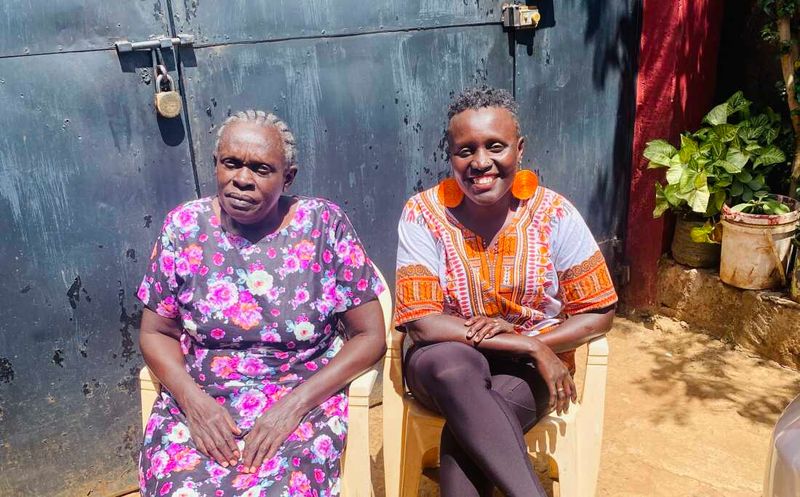My Mom Is My Trigger: 15 Ways To Heal The Most Complex Relationship
You know that weird knot in your stomach when your mom calls? If you’re reading this, I’d bet you do. There’s nothing simple or soft about the mother-trigger—it’s a loaded gun of old fights, unfinished business, and the kind of love that can cut deep.
I’m not talking about petty annoyances. This is about biting your tongue at Thanksgiving, feeling like a kid every time she sighs, and carrying stories you wish weren’t yours. Healing here isn’t tidy. But you’re not alone, and you’re not broken for wanting something different.
Here are fifteen ways I clawed my way toward peace with the most complicated woman in my life.
1. Draw a Clear Line—Then Hold It

Ever try to explain why your mom can’t just drop by whenever she wants? You set the rule, and suddenly you’re the bad guy. It took me years to see that boundaries weren’t punishments—they were self-respect.
The first time I said, “Mom, I need space this weekend,” I felt sick. But after, I realized I didn’t implode. She didn’t, either. Boundaries are scary because we think love means saying yes. Turns out, saying no can be its own kind of loyalty.
Not everyone will cheer for your new rules. But your peace is worth defending, even if it makes Thanksgiving weird. That’s real love—for you, and for her.
2. Name the Wound—Out Loud

There’s power in naming what hurts. When I finally said, “She makes me feel invisible,” it cracked something open. The truth had been clawing at me for years, but putting words to it changed the game.
Speaking your pain doesn’t make you dramatic. It makes you honest. Even writing it in a journal counts. The moment you understand the shape of your wound, you can stop blaming yourself for bleeding.
Occasionally, we inherit pain we never chose. Saying it out loud is the first real move toward freedom—even if your voice shakes.
3. Own What’s Yours (And Only Yours)

You didn’t cause every storm in your family. For years, I thought everything broken was somehow my fault. Turns out, that’s a heavy backpack to carry.
Therapy taught me a crucial trick: imagine sorting through emotional laundry. Take what’s yours—your mistakes, your words. Leave the rest. Your mom’s stuff is hers.
When you stop cleaning up other people’s messes, you make room for your own growth. Guilt isn’t the same as love. Let go of what was never meant for you.
4. Find Your Safe People

Some things you just can’t say to your mom, and that’s okay. I learned to lean on friends who didn’t try to fix me or my mother. They just listened—and sometimes, that’s enough.
You need people who get it, who hear your story and don’t flinch. Maybe it’s a therapist, maybe it’s the friend who knows your worst secrets but stays anyway. Safe people are gold.
You’re allowed to have a family outside your family. Honestly, that’s how you survive.
5. Let Silence Be an Answer

Not every comment deserves a comeback. I used to fight every jab, every guilt-trip text. It wore me out—until I discovered the power of just…not replying.
Silence isn’t passive. Every once in a while, it’s a full sentence. You don’t have to justify your boundaries, or your feelings, to anyone.
If every interaction feels like walking into a trap, you’re allowed to step back. Protect your energy. You don’t need the last word to have the last laugh.
6. Reparent Your Inner Kid

I used to chase my mom for the love she couldn’t give. Then, one day, I tried giving some of that to myself. Sounds corny, but it stuck.
Picture the little kid inside you. What did she need when no one came through? Start showing up for her, even if it’s awkward. I bought myself ice cream after hard days, wrote myself letters, let myself cry.
Your mother’s limits aren’t destiny. You can be the parent you always needed.
7. Laugh at the Chaos (When You Can)

If I didn’t laugh, I’d scream. My mom once argued with a GPS and lost. You just have to admit: this would be hilarious if it weren’t your life.
Humor is a release valve. You can hold the pain and still crack up at the nonsense. Find the jokes. Write them down. Text your friend the punchline.
You’re not making light of trauma—you’re making it lighter, for a second. That counts.
8. Learn Her Story Without Excusing It

One day, I asked my mom about her childhood. The stories gutted me—not as an excuse, but as a map of how pain repeats itself. I still held her accountable, but I understood her more.
You can learn her story without letting it swallow yours. Compassion doesn’t mean you erase the boundaries, just that you see the full picture.
Her wounds aren’t a permission slip. But they are a puzzle piece. That’s the way you stop blaming yourself.
9. Stop Seeking Her Permission

I wasted years waiting for my mom to say, “I’m proud of you.” When I realized it might never come, I had to find my own approval.
You’re allowed to want her praise. But you don’t have to earn your life through her checklist. Do what you love. Wear the weird dress. Move cities. Your happiness isn’t up for debate.
You don’t need a permission slip to be yourself. Write your own.
10. Accept the Apology You’ll Never Get

Some apologies just never come. That’s its own heartbreak.
You can grieve the apology that never lands. Give yourself closure. Imagine what you’d want her to say, and let yourself feel it anyway.
The healing comes from accepting the story as it is, not as you wish it would be. You deserve peace, even if you have to write it yourself.
11. Practice Leaving the Room

You don’t have to stay for the whole argument. I used to grit my teeth through every blow-up, thinking it would make me strong. It just left me exhausted.
Now, I walk away when it’s too much. No drama, no fireworks. Just my body choosing peace over chaos.
You’re not disrespectful for leaving. You’re brave enough to know when enough is enough.
12. Stop Explaining Yourself

I used to give speeches every time I disappointed my mom. I wanted her to understand me. But some people aren’t listening—they’re waiting to react.
Now, I give fewer explanations. I say what’s true and let that be the end of it. Less defending, more living.
You don’t owe everyone a TED talk about your choices. Your truth can stand on its own.
13. Choose Distance If You Need To

Distance isn’t failure. At times, loving someone means loving them from afar. When I moved out, I thought I’d feel guilty forever. Turns out, I felt relief.
Physical space can mean emotional safety. You didn’t betray anyone by choosing your health over tradition. Even a weekend away can help reset the story.
You decide what closeness means for you. That’s not selfish—it’s brave.
14. Give Up the Fantasy Version

I wanted the TV-mom: hugs, apologies, pancakes every Sunday. Letting go of that dream stung more than I expected. But holding onto fantasy kept me angry and stuck.
I had to grieve the mother I didn’t get to have. It’s not a betrayal of hope—it’s making room for who she is, not who I wish she’d be.
You free yourself when you stop chasing a ghost. Reality isn’t always kind, but it’s honest.
15. See Yourself Clearly—Not Through Her Eyes

For years, I believed my mom’s voice was my truth. Her criticisms echoed in my head at 3 AM. Then, gradually, I started to ask: what if she’s just wrong about me?
Seeing yourself without her filter is hard. But it’s the only way to build a life that’s truly yours. I wrote down what I liked about myself, on my terms.
Her version isn’t the only story. You get to write the next chapter, and it can sound nothing like hers.







